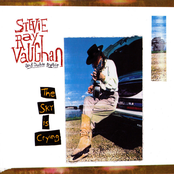In another remarkable instance of BrownhillsBob’s ‘How they are unexpectedly connected’ combined with the ‘Small world, innit?’ department, I today feature an unusual, but beautiful and warm followup to the Littleton Colliery 1912 strike article from last Sunday.
That article recorded an instance of the industrial unrest that dogged the coalfields of the country throughout the pre-Great War period, and Peter ‘Pedro’ Cutler pointed out that it raised some interesting questions about historical and press coverage of such issues.
In the week, John and Paul Anslow wrote to me enclosing a couple of photographs. They rendered me speechless. Yet again, a hugely illuminating historical account from the Anslow brothers, without whose generosity of time and spirit we would be much the poorer.
Can I just clear up one issue, though please? You are not ‘inflicting’ family history upon me or the readers; we all love it. As much as you want, whenever you want. Your articles are so well written and get a huge response, they are an honour to publish.
Again also, beautifully scanned images. Thank you lads. From the bottom of my heart.
Anything to add? You’re most welcome. Please feel free to comment here or mail me: BrownhillsBob at Googlemail dot com. Thanks.
John and Paul Anslow wrote:

John Spendlove and Eliza Newbold. An absolutely stunning photograph. Lives recorded in those faces. John’s eyes alone tell their own story. A wonderful photo from John and Paul Anslow.
Hello Bob,
Paul and I were most interested in Peter Cutler’s piece about the 1912 strike and protests at Littleton Colliery. We have connections with that pit on both sides of the family.
Our great-grandfather, Jim Anslow, was one of the miners who sank the shafts at Littleton between 1899 and 1902. He subsequently worked underground there, as did his sons.

Another stunning image – this one of Gertrude Newbould in a fashionable hat. Again, that face speaks for itself. Image generously donated by John and Paul Anslow.
A great uncle on our mother’s side, Joe Nutting, also a miner at Littleton, was living in Hednesford at the time of the strike, and later at Chadsmoor.
The reason I’m telling you about Joe, however, is not to inflict our family history on you and your readers, but to make the wider point about how strikes in mining communities must have divided families and engendered long-lasting conflict and bitterness.
Paul and I were scanning family photographs recently when we came across one of John Spendlove and his wife Eliza, née Newbold. It appears to have been taken in the early 1920s, around the time of his retirement after 48 years service with Staffordshire Constabulary, during which he rose to the rank of Chief Superintendent. Peter mentions him in his article in connection with the policing of the strike.
The irony is that the Chief Superintendent’s wife was Joe’s aunt, and, as Joe had married his first cousin Gert, she was Gert’s aunt too!
Paul and I do not know what part Joe took in the strike and don’t recall anyone speaking of the matter, but family ties and friendships in close mining communities must have been put under great strain during those difficult times.
Both you and I have commented before, Bob, that just because a man was a miner in those times didn’t mean that he and his wife could not dress smartly, even elegantly, when necessary. I don’t have a photograph of Joe himself, but there is this one of his wife, Gertrude Nutting, née Newbould (sic), taken around the time of their marriage in 1910.
All the best, Bob,
John Anslow

 RSS - Posts
RSS - Posts









Pingback: Over the bridge | BrownhillsBob's Brownhills Blog
Dear Sir. Im trying to find information out about my Grandfather. Thomas Weston. I believe that he worked at Littleton Colliery and lived in.Huntington. I was told he was in Cannock Police but left to become a miner. He then worked at the surface . He was exempt from the war 1914 1918 War because of his job. I would love to find out about him as I have now lost my mother. Thanks
.Helen.Rogers.